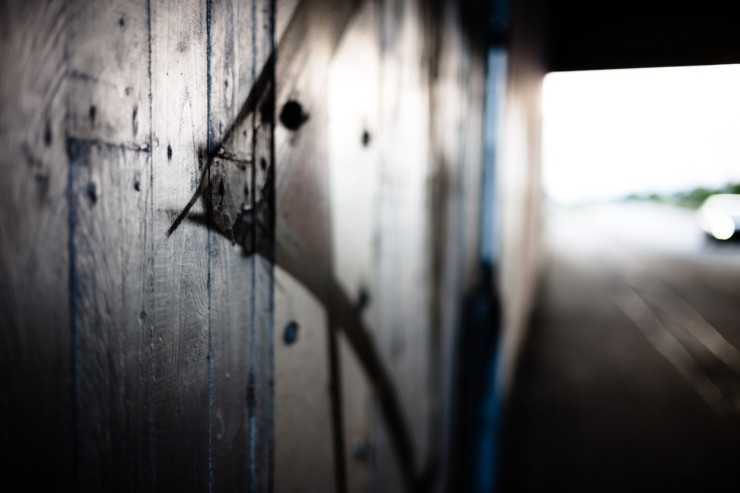
In Virgil’s “Aeneid,” it is from Lago d’Averno that Aeneas descends into the underworld. As such, there have been a long line of poets (before and after Virgil) who chronicled perilous expeditions to the underworld, and still poets who continue to tunnel through the depths of hell to bring back the riches of meaningful poetry, perspective, and substance (not just Hades’ gems).
In Louise Glück’s volume of poetry Averno, she owns a unique perspective in the myth of Persephone. Glück tells us “the tale of Persephone…should be read / as an argument between the mother and the lover-“; that is, between Hades (god of death), and Demeter (goddess of nature), whose daughter was plucked from the sunlit earth and carried down, down, down… to the underworld.
Of her collection of poems, Nicholas Christopher of The New York Times lauded, “The 18 poems in ‘Averno,’ rich and resonant — with intricately linked imagery, overlapping themes, recurring characters — form a unified collection, but one in which each part never fails to speak for the whole. The conclusion of ‘Prism,’ precisely pitched, deftly syncopated, is but one example of that, and it captures the complex, haunting power of these poems…”
In her poem October, Glück casts through the darkness to find a wisp of hope:
5.
It is true there is not enough beauty in the world.
It is also true that I am not competent to restore it.
Neither is there candor, and here I may be of some use.
I am
at work, though I am silent.
The bland
misery of the world
bounds us on either side, an alley
lined with trees; we are
companions here, not speaking,
each with his own thoughts;
behind the trees, iron
gates of the private houses,
the shuttered rooms
somehow deserted, abandoned,
as though it were the artist’s
duty to create
hope, but out of what? what?
the word itself
false, a device to refute
perception-At the intersection,
ornamental lights of the season.
I was young here. Riding
the subway with my small book
as though to defend myself against
this same world:
you are not alone,
the poem said,
in the dark tunnel.
—by Louise Glück
Read the entire collection of poetry in Averno here.
Try It: A Tunnel to the Underworld Poem
Any adventure worth its salt will be perilous at times. It is hope which keeps the adventurer steady through a formidable landscape. Write a poem about a heroic adventurer on a quest. This steely soul will take a harrowing journey through a tunnel into an underworld. Perhaps you will be the hero of this story. What challenges will meet them along the way? What about hope? What lies at the end of the tunnel?
Click to get FREE 5-Prompt Mini-Series
Featured Poem
Thanks to everyone who participated in last week’s poetry prompt. We soaked in the tenderness of Maureen’s poem:
for Mama
(August 19, 1927 – January 11, 2018)
We spread her ashes
In the ocean, each handful
Our forgiveness marked
What hollows love fills
To bridge the differences
Of mother and child
—by Maureen Doallas
Photo by Thomas Schlosser. Creative Commons via Flickr.
Browse more bridges & tunnels
Browse more writing prompts
Browse poetry teaching resources

“How to Write a Poem is a classroom must-have.”
—Callie Feyen, English Teacher, Maryland
- Poetry Prompt: Misunderstood Lion - March 19, 2018
- Animate: Lions & Lambs Poetry Prompt - March 12, 2018
- Poetry Prompt: Behind the Velvet Rope - February 26, 2018

Megan Willome says
Beautiful poem, Maureen.
Heather, believe it or not, I am reading The Aeneid for the first time. I can’t wait to get to the underworld part. Thanks for the link to Louise Glück’s poems—so good!
Heather Eure says
Wonderful! One of my favorite lines from Aeneid:
“It is easy to go down into Hell; night and day, the gates of dark Death
stand wide; but to climb back again, to retrace one’s steps to the upper
air–there’s the rub, the task.”
Sandra Heska King says
“soaked in the tenderness.” That’s it exactly, Heather.
And that link to Gluck’s poems–yes, thank you.
Heather Eure says
I thought you might enjoy the collection. Hope you luxuriated in the verses. 🙂
Maureen says
Thank you, Megan and Sandra.
Katie says
Crater
volcanic lake
birds flying overhead
were destined to fall dead from the
vapors.
Entrance
to Underworld
volcanic Avernus
you foul-smelling, malodorous
crater.
tunnel of terrors
afterlife or underworld
kingdom of the dead
***
I really know next to nothing of mythology. Had to follow your links and learn. Thus the Wiki definition sounding-ness;)
Heather Eure says
Ah! Key words can be a useful tool in drawing inspiration for a poem!
The information I found online about the lake was a bit scattered, so much to my chagrin– Wiki as it was the most thorough. Glad you clicked along with the links, and I hope you were able to enjoy the rest of the poetry from “Averno.”
Katie says
Thank you, Heather.
After clicking through to Amazon’s page on Averno by Louise Gluck, I found this:
“Averno is a small crater lake in southern Italy, regarded by the ancient Romans as the entrance to the underworld. That place gives its name to Louise Gluck’s tenth collection, in a landscape turned irretrievably to winter, it is a gate or passageway that invites traffic between worlds while at the same time resisting their reconciliation. Averno, is an extended lamentation, its long, restless poems no less spellbinding for being without conventional resolution or consolation, no less ravishing for being savage, grief stricken. What Averno provides is no a map to a point of arrival or departure, but a diagram of where we are, the harrowing, enduring present.”
I will be looking for this at my local library.
Kortney Garrison says
So happy to hear you were learning along with writing!
Katie says
Thank you, Kortney,
I like your Crater Lake cinquain:)
Shannon Mayhew says
Katie, I love that your last stanza is a haiku– it’s so haunting and I love the rhythm. So glad you shared your poem!
Kortney Garrison says
Crater Lake
Snow at midsummer
to keep the ground from melting:
path, threshold, portal.
Shannon Mayhew says
Kortney, I love the quiet sense of magic I get when reading this poem! Beautiful.
Shannon Mayhew says
#PersephoneToo
Sun climbs over earth-curve
A threshold, a hand holds
A basket
Her task it’s just to frolic
And flower-pick
Bare feet
Feeling moist soil
Seeming solid
Though plenty-pierced,
Pieced and pungent
Clustered crocus,
Narcissus
A tapestry splash of texture-breath
Spring makes its break from death
But life
Means change
Sky blends
and streaks from crimson deep
to orange and white spikes
Like Heaven’s grass blades
A slice of silence
Softly in tree-shades
Cheeks warmed by sun’s rays
A bark-backed tree seat
Her place for peace
And she’s a willow
The earth her pillow
The bird-song
Sweet
Then,
A rip
In the fabric
Of bedrock
A terror shock
Earth opens
She tunnels down
The underground
The thunder-sound
Envelops her
And Hell is now
Her home
She struggles to see
To feel on hands and knees
For the pieces
The splintered basket
The shreds and shards
In the dark, the scars
The grief
Thick as stone
And her eyes strain
Releasing rain-drops
Unceasing pain–
Drops to her knees
And she cries
Until her eyes have
Offered all they have
Now breathing deep
A healing sleep
Adrape in
A cape of
Exhaustion
Light enters gently
In the new-quiet
Fist, still held too tight
She looks down
Stretching finger-curls
In her palm
Unfurls
Soft and yellow-white
Though the stem is cracked
Petals still intact
The damp narcissus
Misshapen, crepey
And translucent
Rich-earthy new scent
This beauty different
Both lonely
And holy
And only
Known
To those
Whose bones have soaked
In darkness
Katie says
Shannon,
Especially like “Now breathing deep. A healing sleep. Adrape in a cape of exhaustion.”
Very vividly descriptive writing!
Thank you for sharing:)
Katie
Shannon Mayhew says
Thank you, Katie!
Kortney Garrison says
Really loving those last lines:
Both lonely
And holy
And only
Known
So glad you shared, Shannon!
Shannon Mayhew says
Thank you, Kortney! I was actually quite hesitant to share this, so I really appreciate the encouragement from you and from Katie! This poem was a big experiment for me. I usually write in a more careful and quiet voice, but here I took a Jackson Pollock-type approach and splashed the words out there as they came, ignoring any rules or inner-critic voices. It was fun; although I do think it is a little messy — kind of my intent but I still feel nervous sharing it. My kids say that it sounds more like a 21 Pilots song than a poem. High praise from them so I’ll take it. 🙂